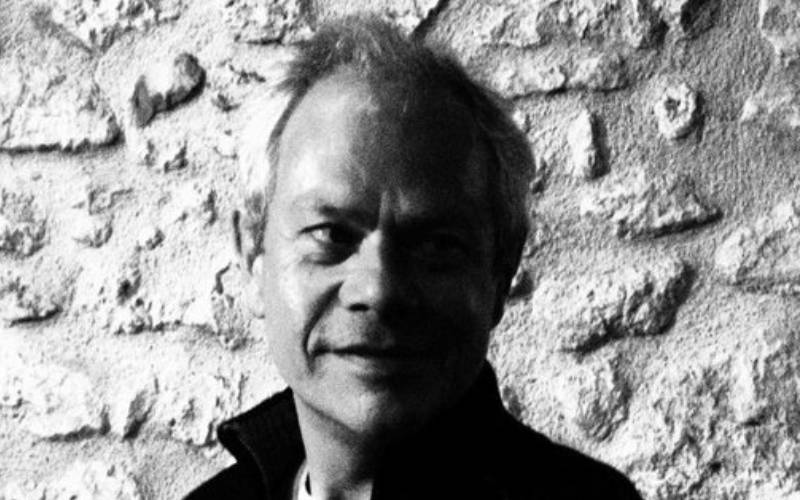“What kind of home [institute] have you got to live in? If you design a home, not as a refuge but where there is a place to be able to think, it’s a slightly different concept. I’m not going to hide you in this secondary container, but I am going to help you to think in this secondary container. Then it feels easier to turn to colleagues and be open to them and get help. Whereas if you think that colleagues are going to be making judgments about you in this more paranoid-schizoid way, then it is not a safe place to go. And then you become stuck doing things that otherwise you would not have done.”

Philip Stokoe
London
Episode Description:
We discuss the ambiguity between technical and common-sense language as it applies to clinical concepts, i.e. ‘resistance’ and ‘boundaries’. We trace the development of early curiosity through the child’s experience of frustration and encouragement. Internal conflict is valued as an intrapsychic capacity as well as that which takes place at the boundary of the analytic encounter. There, unconscious beliefs can be recognized as the internal constructions that they are which then allows for uncertainty, creativity, and curiosity. This has application to our understanding of ethics and collegiality which Philip describes as the ‘secondary container’ of our work. We close with a conversation about his childhood development that contributed to his current interests.
Our Guest:
Philip Stokoe is a Psychoanalyst in private practice in London working with adults and couples, and is an Organisational Consultant, providing consultation to a wide range of organizations. He worked in the Adult Department of the Tavistock & Portman NHS Foundation Trust between 1994 and 2012 and he was the Clinical Director from 2007.
During his career he developed a model for understanding organizations called the Healthy Organization Model. He also designed the Primary Care Psychotherapy Consultation Service (PCPCS) as well as two Masters’ courses and was the co-designer of the Couple Psychotherapy Training at the Tavistock Clinic. He is a member of the European Psychoanalytic Federation Forum on Institutional Matters, which studies the nature of psychoanalytic institutions. His book, The Curiosity Drive: Our Need for Inquisitive Thinking, was published by Phoenix Publishing House in November 2020.
Mentioned in This Episode
IPA Off the Couch – www.ipaoffthecouch.org
Recommended Readings
Stokoe, P. (2000): Holding the Boundaries, Chapter 4 in S. Brookes & P. Hodson (Eds), The Invisible Matrix, Rebus Press.
Stokoe, P. (2003): Group Thinking, Chapter 6 in K. Kasinski, J. Pooley, A. Ward, & A. Worthington (Eds), Therapeutic Communities for Children & Young People.
Stokoe, P. (2010): The Theory and Practice of the Group Relations Conference, Chapter 9 in The Groups Book, Psychoanalytic Group Therapy: Principles and Practice, C. Garland (Ed), Karnac Books.
Stokoe, P. (2011): The Healthy and the Unhealthy Organisation: how can we help teams to remain effective? Chapter 13 in A. Rubitel & D. Reiss (Ed), Containment in the Community: Frameworks for Thinking about Antisocial Behaviour and Mental Health, Karnac Books.
Stokoe, P. (2013): James Fisher (1937-2012) An Appreciation. In: Couple and Family Psychoanalysis Vol 3 No. 1, pp 120-127.
Stokoe, P. (2013): Review of Richard III at Tobacco Factory, Bristol. In: Couple and Family Psychoanalysis Vol 3 No. 2, pp 263-266.
Morgan, M & Stokoe, P. (2014): Curiosity. In: Couple and Family Psychoanalysis 4(1) 42–55
Stokoe, P. (2015): Ethics and Complaints Procedures for Psychoanalytic Organisations: Some Thoughts About Principles. In: Couple & Family Psychoanalysis 5(2) 188–204
Stokoe, P. (2019): The Unconscious in Social and Political Life, Chapter 1, Where have all the adults gone? in Morgan, D (Ed); Bicester, Phoenix Publishing House
Stokoe, P. (2019): Loss in Organisations, in Akhtar, S (Ed), Loss: Developmental, Cultural, and Clinical Realms, Part 2, Chapter 4, Routledge
Stokoe, P. (2020): The Curiosity Drive: Our Need for Inquisitive Thinking, Bicester, Phoenix Publishing House

What a wonderful episode!